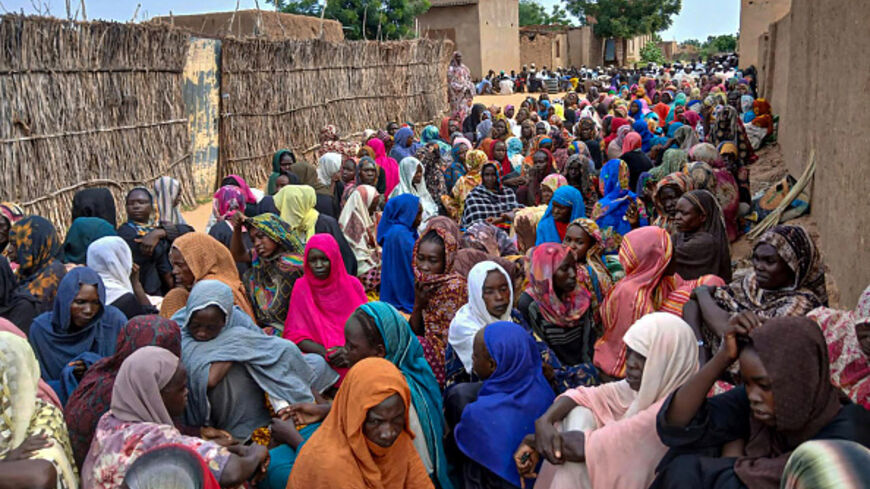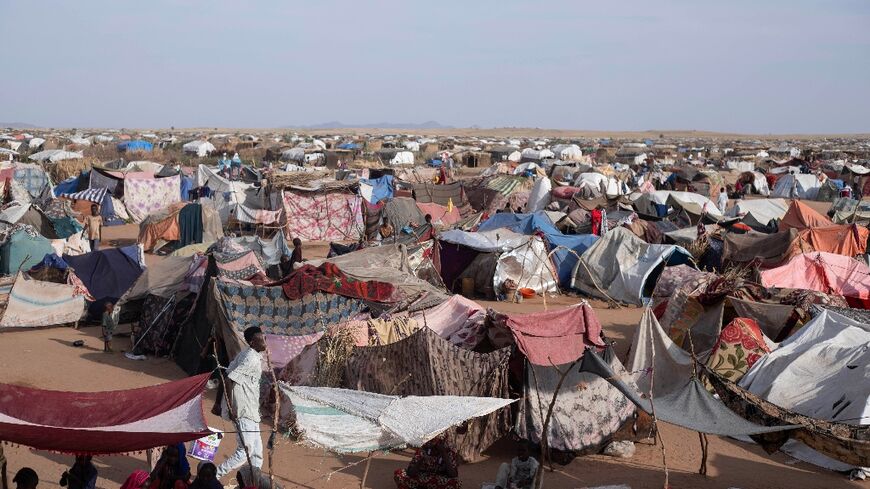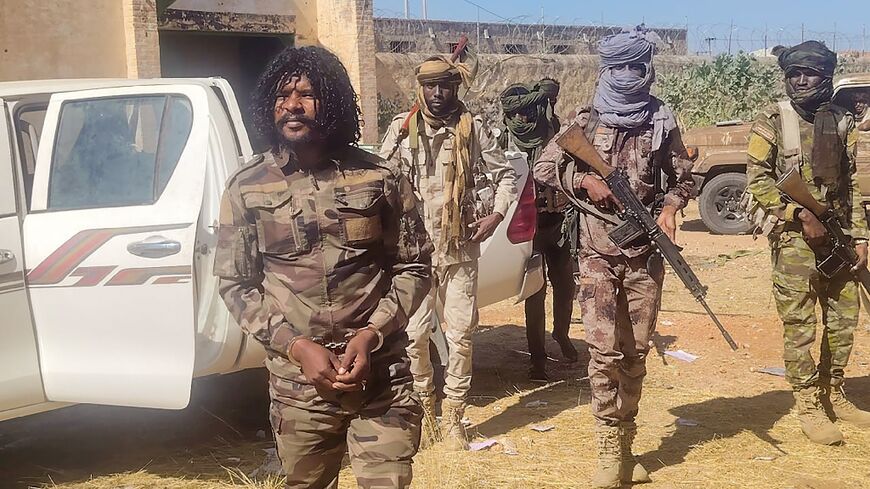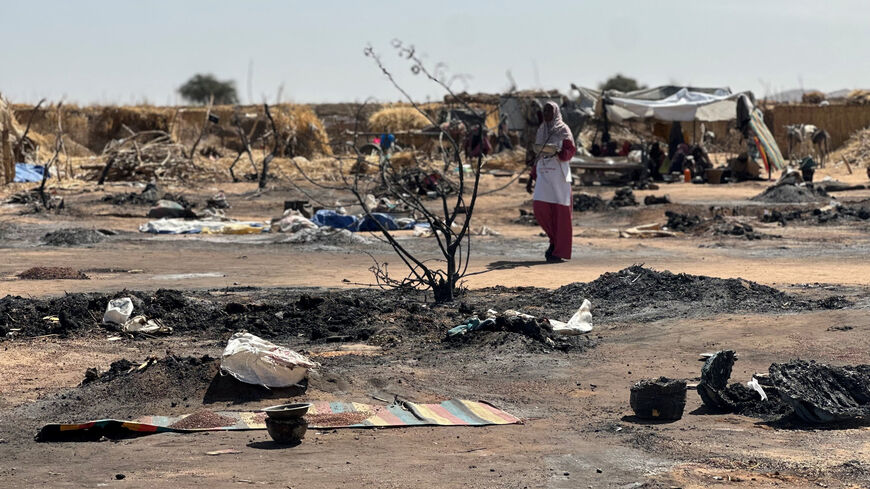Sudan war rages amid reports of ethnic cleansing, children 'piled up and shot'
The Sudanese army and rival paramilitary forces have engaged in heavy battles in el-Fasher, in the Darfur region, amid fears that a full-scale attack on the city will lead to abuse and violations against civilians, as has happened elsewhere in the region.
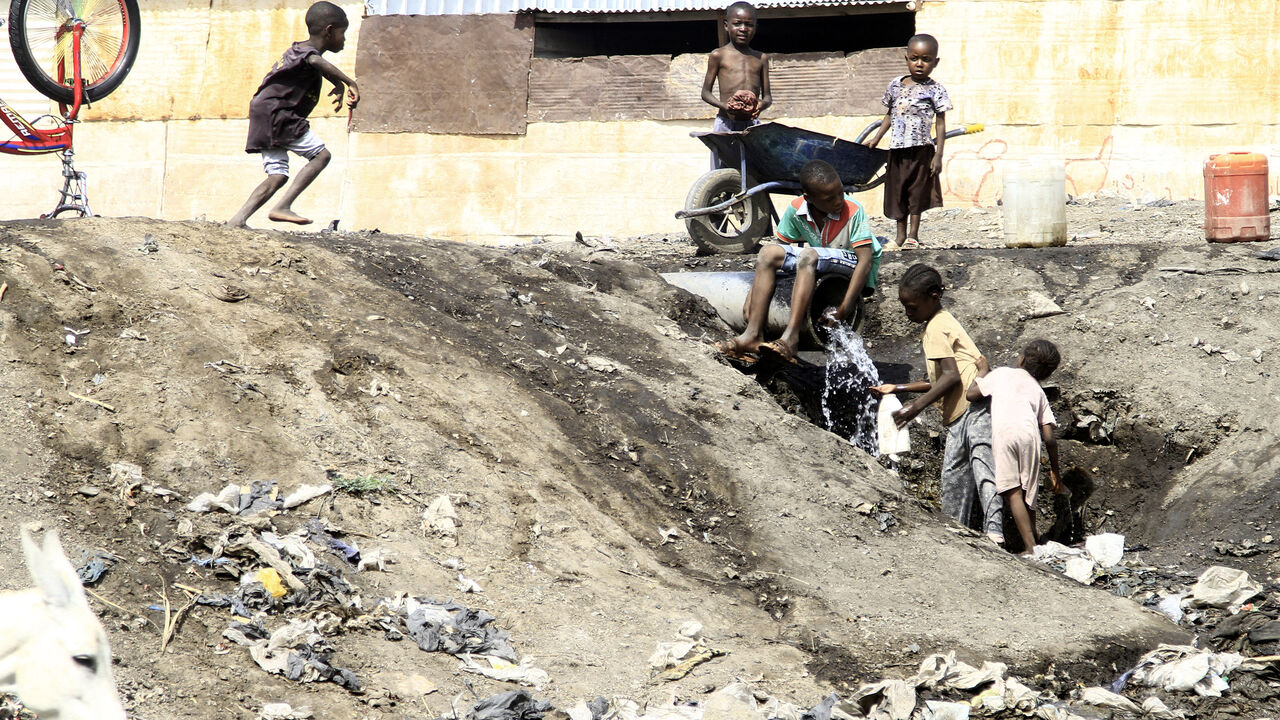
Heavy clashes erupted Friday between the Sudanese Armed Forces (SAF) and the rival Rapid Support Forces (RSF) in el-Fasher, capital of North Darfur, amid growing calls to protect civilians inside the besieged city and concerns over the humanitarian situation.
Al-Arabiya television reported the clashes on Friday, with social media users sharing photos showing billowing clouds of smoke in parts of el-Fasher. Heavy weapons and heavy artillery shelling were heard across the city. Telecom blackouts were also reported.
El-Fasher had largely been spared major fighting in the war that erupted more than a year ago. The RSF has captured most of Darfur, in western Sudan. El-Fasher is the only city in the region that remains under the SAF's control.
The RSF encircled the city in mid-April as part of an effort to expand its control in Darfur.
Fighting has largely been limited to the outskirts of the el-Fasher, but the prospect of a full-scale attack extending into city's center has raised concerns about potential abuses against the civilian population, as well as massacres, as has happened elsewhere in Darfur.
El-Fasher is a humanitarian hub from which United Nations agencies oversee various aid operations. It is also a city of more than 1.5 million people, some 800,000 of whom are internally displaced, according to UN data. The displaced include people recently affected by fighting in other parts of the region in addition to hundreds of thousands who in the early 2000s fled ethnic violence in Darfur against the Fur, Massalit, Zaghawa and other non-Arab ethnic groups.
تصاعد أعمدة الدخان و سماع أصوات اشتباكات وتدوين مدفعي متبادل في الفاشر هذه اللحظات.
— برق ⚡️ (@249_Barg) May 10, 2024
حفظ الله المدنيين#الفاشر pic.twitter.com/m3fu1AGcEX
“A conflict over el-Fasher would be catastrophic for innocent civilians trapped in the city,” Toby Harward, the UN’s deputy humanitarian coordinator for Sudan, told the Washington Post on Thursday. “Many would be killed.”
Harward further warned, “Significant bloodshed in el-Fasher would likely expand and metastasize the conflict across Darfur and possibly beyond. We cannot allow history to repeat itself in Darfur.”
Ramtane Lamamra, the UN secretary-general’s personal envoy for Sudan, warned against an attack on the city, saying, “[It] would likely have devastating consequences for the civilian population.”
In a statement last week, Lamamra called on the warning sides to refrain from fighting in el-Fasher.
The latest developments in el-Fasher come after Human Rights Watch (HRW) accused the RSF of ethnic cleansing and possible genocide and crimes against humanity in the West Darfur state.
In an extensive report published Thursday, HRW documented attacks by the RSF between April and November 2023 that killed thousands of people at the least. The document cites evidence of violations and crimes committed against the Massalit people and other non-Arab communities in el-Geneina, capital of West Darfur state, as part of an ethnic cleansing campaign.
Among people interviewed for the report was a 17-year-old boy who said he had seen RSF forces killing 12 children and five adults from several different families.
“They piled up the children and shot them,” the boy said. “They threw their bodies into the river and their belongings in after them.”
Both the RSF and SAF have been accused of abuses and rights violations throughout the war, which the United Nations and rights groups say could amount to war crimes.
In a report released in March, a group of UN experts found evidence of targeted ethnic killings, forced displacement, looting and rape, mostly committed by the RSF.
Sudan has been grappling with a devastating war since a power struggle between the SAF and the RSF escalated into armed conflict on April 15, 2023. Since then, more than 14,700 people have been killed and nearly 30,000 others injured, according to the International Rescue Committee.
The conflict has also created what the United Nations describes as the world’s largest displacement crisis, with more than 8.6 million people forced to flee their homes since last April, according to the International Organization for Migration.
Despite growing calls to end the conflict, the warring parties have not moved toward an agreement. On Thursday, SAF commander Gen. Abdel Fattah al-Burhan said there would be no negotiations or a cease-fire until the RSF is eliminated.
“If we do not eradicate these forces, we will not put down our rifles,” he told SAF fighters during a visit to River Nile state, in northern Sudan. “We will not negotiate or talk about signing a peace agreement with them, nor cease-fire.”
Burhan added, “Either we finish off this group or they flee and leave the country.”



